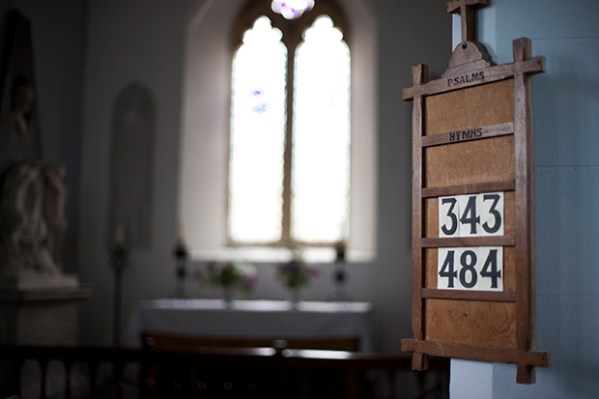The barbecue was a sawn-off 40-gallon oil drum with holes punched in the sides. It stood on a rock under the spreading boughs of an oak tree. For fuel we chucked in driftwood logs and clumps of seaweed. The Old Speckled Hen was going down a treat in the evening sunshine, and the barbecue smoke and I were circulating convivially.
I was introduced to a young couple who were new to the area. They had recently moved to Britain from Uganda, where they had been farming. We talked about Africa. I said I’d recently seen a BBC news report claiming that the African economy has taken off, and to the extent that the standard of living of the average African was already on a par with that of a BBC executive. Well, it was certainly improving for some, they said doubtfully.
The woman was born in Africa, she said, and so were her parents. She knew Africa and she knew Africans. She called them Bantu. She made a distinction between what she called the ‘lower’ and the ‘higher’ Bantu. It was a distinction that was entirely new to me. She much preferred the simplicity of the lower Bantu, she said. You knew where you stood with them. The higher ones were too artful.
It took a while for it to dawn on me that she was speaking in evolutionary rather than geographical terms. When it did, I nearly choked on my sausage. Then I looked furtively around to see if anyone else had heard her. Then I looked at her husband to check that it wasn’t some kind of elaborate, well-rehearsed joke that they were playing on me. His poker face remained unchanged. So I apologised for looking like the minor character in the B movie who is first to clap eyes on the evil monster, and I offered an explanation.
In the mid-Nineties I went to London University and read for a degree in African Studies. For three years I read nothing but African history, African literature, African politics, and African criticism of European colonialism. Institutional rule number one was that there is no such thing as race, which is a wicked, essentially political, and comprehensively disproven myth. There are only individuals, and in the undeveloped world religions, cultures and ethnicities. This fact was so self-evident it brooked no discussion.
I became good friends with a law student from Zimbabwe called Thomas. Thomas told me that his father had migrated to Zimbabwe from Mozambique and had taken on the name and tribal identity of the Ndebele as one might choose to support a football team. I had always romantically assumed that tribes were united by blood and was shocked by this. And yet Thomas was immensely proud to call himself an Ndebele, which is the modern term for Matabele, who were a notoriously warlike agglomeration of conquered tribes, led by the charismatic chief Mzilikazi. In English footballing terms, Thomas and his father had chosen to support Millwall.
(Thomas once came to my house, and I introduced him to my boy, then four or five years old. ‘What colour was Thomas?’ I said after Thomas had gone. I don’t think he’d noticed one. ‘Blue,’ he said, after giving the matter some considerable thought.)
All the same, the students at my university were exquisitely sensitive about the concept of race (even though there is no such thing). Mention the San people’s fat-storing buttocks in a seminar, for example, and people would faint. Those not fainting would walk out of the room in high dudgeon. There was absolutely no justification for mentioning the San people’s buttocks in a tutorial or seminar unless in tacit support of biological racism, or worse still polygenesis. The San people’s buttocks are an ideological red herring, they said confidently.
So I’ve been acutely conditioned to understand that only the lowly and uneducated — who are also prone to seduction by absurd myths like religion and nationalism — have any truck with ‘higher’ and ‘lower’ races: the neanderthal element among our own working-class whites, for example.
And even if there is such a thing as race (which there isn’t) the identification of a higher and lower Bantu civilisation doesn’t stand up. The Bantu migration from west Africa began 3,000 years ago, say experts, which on an evolutionary timescale is only about two minutes ago. It would be like saying that Australians are more or less highly evolved than the English.
But the woman was an African by birth and descent, not English. And she was a farmer, not a moralistic student. She looked at me kindly and pityingly through the bars of my politically correct prison. So instead of stating all of the above to explain my surprised reaction, I lamely stated that one just didn’t often hear that sort of thing said openly these days, not in polite English company, anyway.







Comments